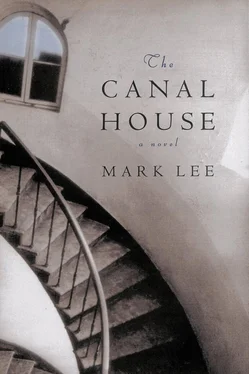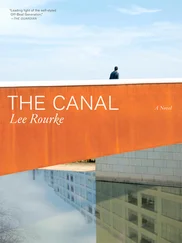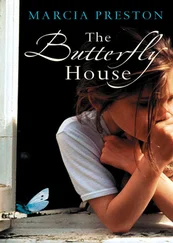I went to a trattoria in the old Jewish Ghetto and ate two bowls of oxtail soup. When I returned to my hotel, the night clerk bowed slightly and called me dottore as if I were a classics professor who had arrived to study the ruins. Signor McFarland had called and requested that I meet him at the Stampa Estera for lunch.
I had been there for a news conference a couple of years ago and remembered that it was near the main post office. It was a club, run by the Italian government, for the foreign journalists working in Italy. I took the subway to the Spanish Steps the next day and strolled past the tourists, the North African street hustlers, and the carabinieri dressed in their dark blue uniforms. A flock of pigeons rose up into the sky and I took a picture for the hell of it.
I found the small building that housed the Stampa Estera and went upstairs. The first floor lobby had a few saggy club chairs and a well-stocked bar. I told the elderly bartender that I was looking for Daniel McFarland and he pointed to the dining room where several people were eating lunch. I’m a confident man behind the camera, but this was a job interview. I took a deep breath and walked into the room.
When I last saw Daniel at the Café Metropole in Sarajevo, he had a two-week beard and wore blue jeans. Now he was clean-shaven and dressed in a well-cut Italian suit without a necktie. His brown hair was still long enough to show that he wasn’t a corporate journalist worried about his mortgage and pension plan. There was an intensity about Daniel, a way that he watched your eyes and listened to your words that was somewhat intimidating. You knew right away that he was one of those people who burn brightly as they move through the world.
He got up from the table and smiled. “Nicky Bettencourt.”
“That’s me.”
“Daniel McFarland.” We shook hands. “How was the flight?”
“Short.”
“Where are you staying?”
“Hotel Centro. Near the Termini.”
We both sat down at the table. “Carter said you were in Bosnia for a while.”
“Yeah. I knew a photographer who used to work with you.”
“Who’s that?”
“Victor Zikowski.”
Daniel looked away and poured some wine into my glass. “Bosnia was tough on photographers. A few months after Victor was killed, I was working with Tommy Boyle and he got hit in the neck with a chunk of shrapnel. The wound messed up his vocal cords. Now he talks like a frog.”
A waitress came over and gave me a menu. “Stay away from the fish,” Daniel said. “The lamb’s okay, but it varies. I recommend the spaghetti alla puttanesca .”
“ Puttanesca . Whore’s style,” I said. “The perfect dish for a photographer.”
I thought that we were going to have a private meal together, but a Slovenian journalist and a reporter for a Brazilian newspaper joined us a few minutes later. Daniel ate lunch at the Stampa Estera two or three times a week and anyone who showed up was welcome at his table. It didn’t take me long to realize that most of the people eating with Daniel didn’t exactly have a real job. They were stringers, squeezing out a living with an occasional article for a newspaper in Finland or a Catholic magazine in Ukraine.
Whenever Daniel ate at the Stampa Estera, he bought the endless fojettas of wine that the waitress set down in the middle of the table. Everyone was supposed to pay for his own meal, but the bill magically became smaller for the hungry-looking Moroccan reporter and ex-Pravda correspondent with the frayed shoes. Daniel had realized that many of the older journalists hanging out at the Stampa were walking encyclopedias of valuable information. We talked about many things that afternoon, but I remember a long discussion about the Golden Triangle: the opium-producing region in Laos, Thailand, and Burma. The Slovenian journalist and a Frenchman who joined us later had traveled through the area and Daniel was relentless with his questions: How did you get there? What was the best way to hire a guide? How do you offer a bribe to a Thai soldier? Information was received and filed, ready for future use, but he was also funny and charming, and I began to feel a little jealous. Some people can strap on ice skates and glide through social situations while people like me are flailing their arms and grabbing for the rail.
The kitchen stopped serving lunch at four o’clock. The other journalists left and Daniel ordered a double espresso. “What’s this story about?” he asked. “Hostages, right? Game parks. Northeast Uganda. The Lord’s Righteous Army.”
I had drunk too much wine and was feeling fuzzy around the edges. “Why are you asking me? I thought you knew all about it. You told everyone in London that you could find Samuel Okello.”
“I said it was possible.” He set down the little coffee cup with a sharp click. “As I recall, the hostages were British and American—”
“And one German.”
“Good. I can sell the story to a German newspaper, along with the Post and the Daily Telegraph .”
I followed him upstairs to the third floor where they kept the mailboxes and a soundproof room for TV interviews. Several people greeted Daniel, but he didn’t stop to chat. He led me into a long, narrow room crowded with ten steel desks, each one rented by a different journalist. Daniel’s was piled with stacks of old newspapers and manila envelopes stuffed with clips of old stories. An answering machine was attached to the phone and the little red message light blinked frantically.
Daniel sat down at the desk and motioned for me to grab a chair. What I wanted to do was go back to my hotel and take a nap, but I sat down. First he pulled up a background story from the New York Times archive, then he took out his PalmPilot and began to call newspaper and magazine editors in Germany.
Successful journalists are experts in charm and duplicity. Charm to get people to answer your questions, duplicity since you discard the opinions of the person you’ve interviewed and write your own version of what happened. Daniel also used charm and duplicity to multiply his income. Without agreeing to anything specific, he convinced each editor that he shared his or her vision of the world. When Daniel talked to the German editors, the German hostage was a crucial part of the article. As I sat there listening, he sold different versions of the same story to the Frankfurter Allgemeine and two magazines.
Between phone calls, he sent e-mail requesting payment for previous articles, then played back his voice mail. The first message was from an Italian woman with a cultured voice. I didn’t understand much Italian—aside from ordering food in restaurants—but it was obvious that she wanted to see him.
“That’s the Contessa,” explained Daniel as he phoned another editor.
The Contessa left a half-dozen phone messages that were interspersed with the voices of Daniel’s various contacts and two calls from his London banker. She was passionate, then angry, then weeping, and finally shouting. Her last message was short and very formal. She gave a time in English and hung up.
I still didn’t know if we were going to Africa. “If you want to look at my past work, I’ve got an envelope of photographs back at the hotel.”
“That’s not necessary. I accessed Newsweek ’s archives and looked at your shots. Some of them are pretty good, Nicky. I liked that picture of the severed arm you took in Rwanda.” Daniel shut down his computer. “You and I are going to a party at the Contessa’s tonight. Did you bring any clothes to Rome?”
“I’m wearing them.”
“Okay. We can deal with that.” Daniel unlocked a desk drawer. He took out some one-thousand-lira notes and stuffed them into his right pants pocket. A larger wad of ten-thousand-lira notes went into his left pocket. “Let’s go.”
Читать дальше












